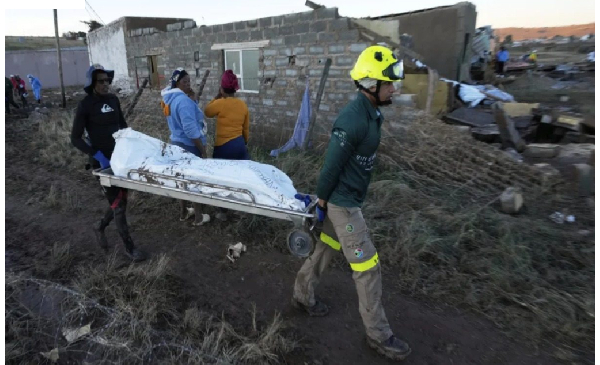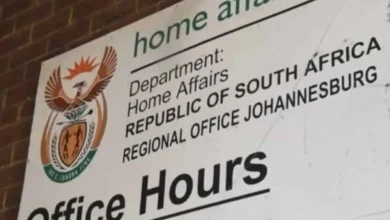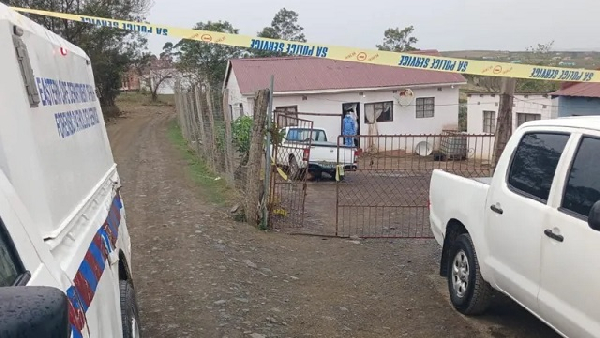Death toll hits 101 in South Africa’s Eastern Cape floods as search for missing children continues

The devastating floods that swept through South Africa’s rural Eastern Cape two weeks ago have now claimed 101 lives, including a 12-month-old baby, the youngest victim so far. Authorities confirmed the updated toll on Thursday as search teams continued looking for two missing children.
Triggered by a cold front on June 9 and 10, the torrential rains unleashed flash floods that submerged homes, uprooted families, destroyed infrastructure, and left thousands without electricity. In many areas, entire houses were washed away.
Zolile Williams, a senior official in the Eastern Cape provincial government, provided the grim update during a press conference, stating that 94 of the victims had been identified and their remains returned to relatives. He noted that “38 children were among the dead” and more than 4,000 people were now homeless.
The flood-stricken province, already one of South Africa’s poorest, has been struggling to recover. Williams estimated that the cost to rebuild damaged infrastructure would be at least $288 million, and he appealed for national assistance.
“The province… needed help from the national government,” he said, stressing the scale of the crisis.
In response to the disaster, South Africa last week declared a state of national disaster, unlocking emergency funds for relief efforts. President Cyril Ramaphosa, who visited the hardest-hit areas, attributed the disaster to intensifying climate patterns.
He blamed the heavy rains and catastrophic floods on climate change, pointing to increasingly frequent extreme weather events across the region.
While Eastern Cape continues to recover, another cold front battered the Western Cape this week, drenching Cape Town and surrounding areas and triggering more flooding, according a report by AP.
South Africa is no stranger to climate-fueled disasters. In 2022, over 400 people died in the coastal city of Durban and nearby regions following days of relentless rainfall and mudslides. The latest events have again raised urgent questions about the country’s preparedness and resilience in the face of worsening weather extremes.
Source: face2faceafrica.com





